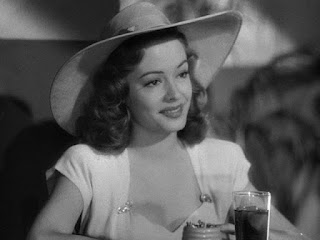 WHERE LOVE HAS GONE
WHERE LOVE HAS GONE (1964). Director: Edward
Dmytryk.
"What's a honeymoon? Two weeks of people telling each other lies ... they'll never live up to."
"
When you're dying of thirst you'll drink from a mudhole!"
War hero Luke Miller (Michael Connors) marries wealthy sculptress Valerie Hayden (Susan Hayward), and things fall apart pretty quickly -- with help from Miller's mother-in-law, Mrs. Hayden (Bette Davis). After their divorce, the Miller's troubled daughter, Danny (Joey
Heatherton), is accused of stabbing her mother's lover to death. This
roman a clef regarding the Lana Turner-Johnny
Stompanato case, based on Harold Robbin's best-selling novel, is well-acted, absorbing, and very entertaining. Davis and Hayward have at least one sizzling confrontation, and Joey
Heatherton is simply terrific -- she should have had a much bigger career. Jane Greer and Anne Seymour are fine as, respectively, a social worker and psychiatrist, and Anthony Caruso scores in a brief bit as a horny blackmailer. In bit parts are Ann
Doran (
It, the Terror from Beyond Space; The Man Who Turned to Stone) and Walter Woolf King (
Swiss Miss; A Night at the Opera).
DeForest Kelley of
Star Trek fame is very memorable as Valerie's agent, and George
Macready as adept as ever as her mother's lawyer. As for Davis, good, bad or indifferent, Bette Davis is always Bette Davis. In this film she's already starting to split up her sentences in a way that indicates her constant smoking gave her such breathing problems that she could rarely complete a line without taking a breath somewhere. [Eventually she would have to take two breaths per sentence.] Jack Jones sings the pants off the title tune. John Michael Hayes' script was undoubtedly superior to the book.
Verdict: Definitely a guilty pleasure. ***1/2.














